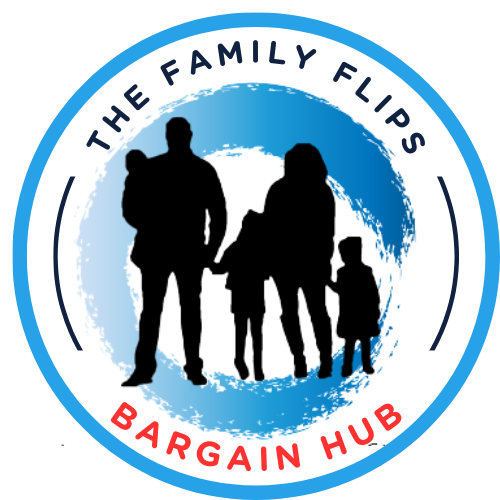The Story…
In our reselling journey, we’ve encountered numerous challenges and learned valuable lessons along the way. One challenge that shook us to our core was an impersonation and liquidation scam. Someone created a fake Facebook profile using our pictures and pretended to be us, aiming to swindle innocent people out of their hard-earned money meant for liquidation pallets. It’s a disturbing experience, especially considering the trust we’ve built within our community over the years.

I guess that would have been disturbing enough, but I also think about the photos this person stole that had our children in them. It was an insanely creepy and invasive feeling.
Even more disheartening was the fact that, despite numerous reports, Facebook didn’t take down the fraudulent profile. We want to share our story to raise awareness and help others protect themselves from similar scams.

If I cannot remove the profile to protect our community from these issues, then the best I can do is warn everyone else and use it as a teaching opportunity. That being said:
4 Tips to Avoid Getting Scammed When Buying Liquidation Pallets

1. Research the Liquidation Company:
When dealing with a potential seller, conduct thorough research:
- Examine their website thoroughly and carefully.
- Check their physical location on Google Maps and make sure it’s listed as the a liquidation reseller. I actually found a place that, once you put the address listed on the website into Google Maps, the business was actually listed as an Auto Repair Shop!
- Call their listed phone number. Verify with the person on the phone that this is the business that is listed at that number and that they do, in fact, sell pallets. Ask questions about the product.
- Request a video call or, if possible, visit their store to inspect the pallets in person. Legitimate sellers should have no problem providing verifiable information. One way to do this is to ask for video for a specific pallet program that you’re looking for. If they claim to have Amazon Medium pallets, for example, do the pallets look correct to you? If they’re selling a shoe pallet, have them show you on a video call. If they’re sending you video and you can hear them talking and answering your questions specifically, it’s a great way to verify that they have those pallets on hand.
2. Be Cautious of Liquidation Advertisements and Customer Reviews:

Approach advertisements, referrals, and reviews with skepticism, especially if you don’t personally know the reviewer. Scammers have become adept at creating believable profiles. Look for signs of a fake profile, such as a lack of post history or posts with edited timestamps.
Ask detailed questions about the pallets to weed out a potential liquidation scam.
Another thing to think about is how a lot of these liquidator recommendation forums work. On Facebook, for example, there are pages that allow liquidators to post in those groups for a fee. This seems like an innocent practice, many times admins of these forums find themselves in compromising situations. Liquidation providers become their customers that they do not want to make unhappy, not the potential customers who would buy from those liquidators. When that happens, it’s up to the admins to keep the liquidators happy and thus posts and comments that might depict liquidators negatively will get deleted. That’s not to say that these forums are not helpful, but it is important to keep that in mind when you’re researching potential sources.
3. Utilize Google Lens Search to Identify Fake Liquidation Pallet Photos:

If a seller provides images of pallets, save those photos and run them through Google Image Search. Legitimate sellers’ photos should primarily link to their website. Multiple matches of the same image across different sources may indicate recycling of images, a common practice among pallet scammers.
It is a simple practice that takes 15 seconds and can save you a lot of heartbreak.
4. Pay for Pallets with Platforms that Offer Protection from Fraudulent Transactions:

Don’t use payment methods like:
– Paypal “Friends and Family,”
– Venmo,
– Cashapp, or
– Zelle
when buying pallets.
The extra percentage for business transactions is a small price to pay for the protection it provides. Consider it your “insurance”. These platforms allow you to dispute transactions in case of a liquidation scam, providing you with peace of mind.
Wrapping Up!
The truth is, we are all responsible for protecting ourselves and our businesses from potential scammers. Keep this information in your mind as you’re shopping for new sources.
For a deeper dive into these tips and real-life examples, check out our video on YouTube. Stay vigilant, protect your investments, and join us in the fight against scammers. Together, we can create a safer reselling community.
Stay safe out there, friends!

